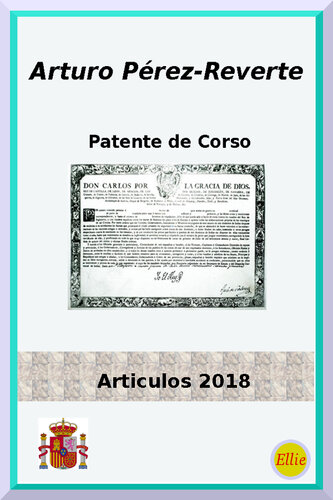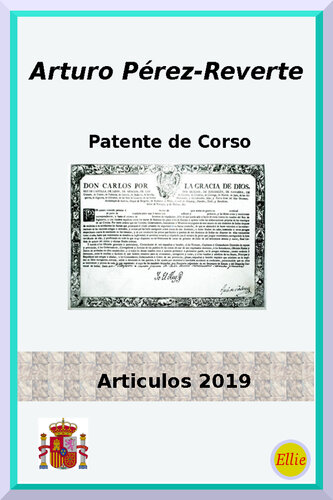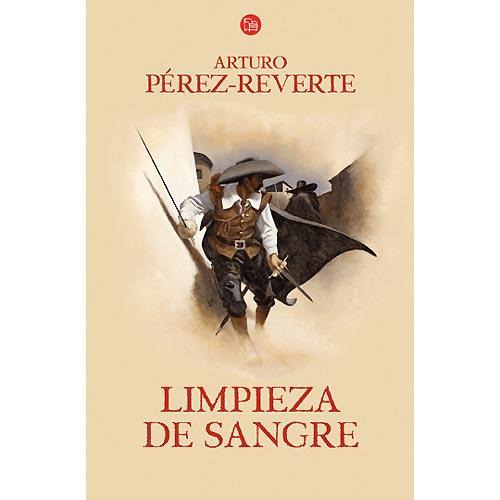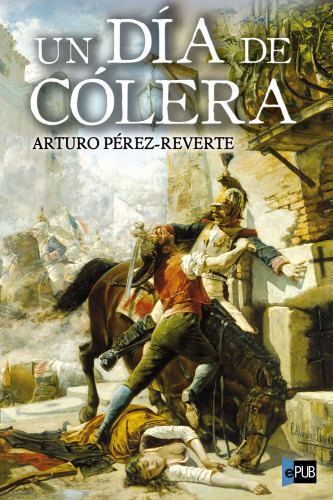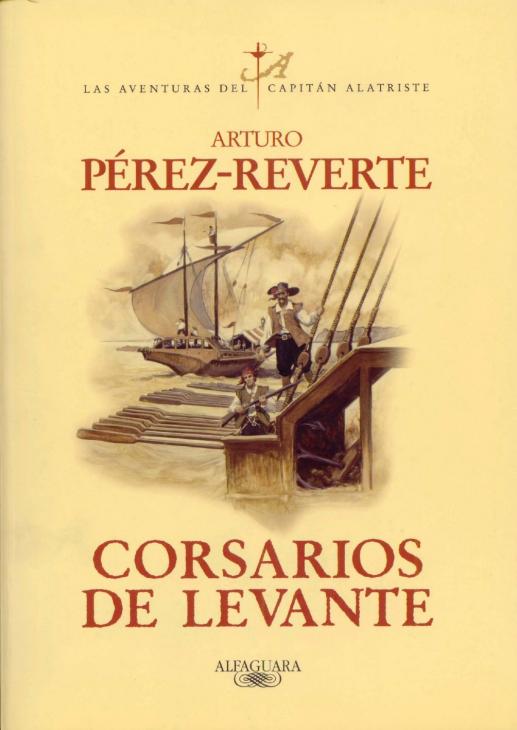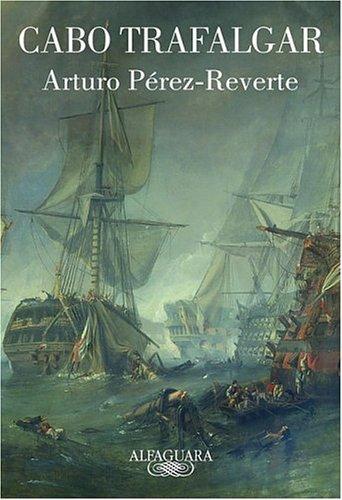oleebook.com
La Carta Esferica de Perez-Reverte, Arturo
de Perez-Reverte, Arturo - Género: Ficcion
Sinopsis
Perez-Reverte, Arturo Year: 2009
Descargar
Descargar La Carta Esferica ePub GratisLibros Recomendados - Relacionados
Reseñas Varias sobre este libro
???????, ??????????, ?????????, ??????, ????????, ?????, ???????? ????????, ??????? ????????. ??? ?? ???????? ??? ??? ???? ?? ????????? ?? ??????? ???????????? ??????????? ????? ???.
???? ?? ???? ???? ??? ????? ???? ?? ?????? ???? ?????? - ???????????? ???? ???? ?? ????? ????? ?? ???? ???, ???? ?? ???? ???? ??? ??????? - ??? ?????? ?????? ???????
???? ????? ?? ????????? ??? ??? ??? ?? ?????? ??? ?? ?????? ?????????? ????? ???????? ??? ?? ???????? ??? ????????? ????????? ???. ???????? ??? ??????.
?????? ?????? ?? ???? 4 ???????, ??? ?? ???????????, ??? ?? ?????? ??? ???? ????? ???????? ? ?????????? ??????? ?? ?? ??????? ????????, ???? ??? ????? ??????? ??? ???????? ?????? ?????? ??? ?????? ??? ? Reverte ????? ???????? ???????????? ??????.?????????? ????????????32 s Metodi Markov1,487 363
????????? ?????????????? ??? ????????? ?? ???????? ? ???? ?????, ??? ????? ??????? ????, ? ??? ?? ??????????? ???? - ?????? ????!
?????? ????????? ????? ?? ??? ??????!adventure crimy favorites ...more32 s2 comments Penny Well Reads810 217
DNF
I asked for the book as a present from my parents when it came out back in 2000 so that I could take it with me on my vacation.
This was nearly 15 years ago but I remember stubbornly giving it three different, very separate tries before finally giving up for good. I was determined back then to finish every single book I started, more so with this book since it came from my parents at my request, but I couldn't manage.
I only have one word to describe how my younger self felt while reading it back then:
BOOOORED
I don't recommend reading this book.dnf-did-not-finished españa f-read-fiction ...more21 s Howard1,525 97
4 Stars for The Nautical Chart by Arturo Perez-Reverte read by George Guidall translated by Margaret Sayers Peden.
This was a wonderful adventure. It moves a little slow but I think its worth it. Great narration too. audiobooks fiction17 s Vonia611 93
This was actually quite the disappointing novel. This is my third from Perez-Reverte, and the other two were significantly better. His voice is definitely there. As soon as I began reading, I recognized his voice. His writing transports the reader into another time and place, accompanied by a mysteriously intriguing aura that his words produce; an apprehensive, curious, but always with a tinge of the medieval. The problem here was the plot. It was not really interesting at all, did not really seem to go anywhere, and was pretty much completely predictable from the beginning of the book. In fact, it would have been completely predictable by synopsis alone.
To summarize this in a couple paragraphs. Coy is a dedicated, heartfelt, relentless, and seasoned sailor, more comfortable at sea on the high water than on land socializing with others. As a consequence of some negligence on a previous expedition, he has been grounded to land for a few years. Living off of savings, unemployed, and at a loss with what to do with his days, he fortunately (unfortunately?) meets a beautiful woman by the name Tánger Soto (by her father, whom sailed the seas near Tangier in South Africa). He becomes knowingly have sex with her, which leads to him knowingly being foolish enough to be willing to follow her to the ends of the earth, simply for the possibility of spending more time with her. This is despite the less than ideal treatment he receives from her, which in a word, is bitchy. He follows after her as if he has no power over his own mind, pretty much doing anything he is told.
As for Tánger, despite her past that may contribute to the way she uses coping mechanisms to defend herself from the weekend and am is society, she had no call to be so fearless toward those being genuinely unselfish in their "relationship" with her. Worst yet, she offers no apologies for the way she acts. She is the unspoken leader of this expedition, in search of the sunken ship, Dei Gloria. It is supposedly full of clear cut emeralds, worth somewhere in the hundred millions. Tánger has had her heart set on this since she was a little girl, and clearly willing to do whatever it takes. She unashamedly manipulates Coy into taking her there, purposefully withholding the cards she finds most valuable, revealing others intermittently. But only by her agenda. And when she showed some vulnerability, reaching out to him, Coy "has never before felt he was raped by a woman". She makes love to him, someone she is fully aware is in love with her, without even looking at him, but through him. Selfishly. This, among so many other things, makes her a completely unable protagonist, which does not bode well for a reader trying to connect with the characters.
Other characters are a couple treasure hunters trying to stop the two of them (a subplot of violence), scholars and professors in cartography and nautical studies, and El Piloto, the captain of the
Sailboat they take. The rest of the many hundreds of pages is full of nautical terms, cartography vernacular, and fictional historical information on the Jesuit ship. Read: uninteresting. Unless one is very familiar with the terms, or has a higher than average interest in both fields. Even then, they are not explain to the reader are very well. It was academic writing, where it was assumed the reader was already knowledgeable in the basics. most of the population, I know close to nothing about these fields, and my excitement to learn more about it and be immersed in the world so that I would have a better grasp on the subculture was defused rather quickly. Most of it went over my head. I began to be greatly relieved whenever the specific discussions of longitude, latitude, knots, ships, etcetera ended and returned to story narration. But it was not long before the academic discussions began again in earnest.
A few hundred pages later, the team of three is still searching. Whether they actually find the sunken ship full of emeralds in the end is actually irrelevant. Each of the characters has their own reasons for being on the expedition, none of which the riches from The Dei Gloria can fulfill for them. As soon as the three amigos commenced with their final expedition- their final attempt- to uncover the lost ship, I thoroughly loved what I was reading. If only the rest of the book was not lackluster in comparison. Things moved along for these last thirty or so pages at a satisfying pace, with substantial suspense, and concluded with an ending that I really appreciated. many may have seen this as an unsatisfactory, sad ending. on the contrary, I found it not only inevitable, but one of the books where a fairy tale ending of any sort would have only made it that much worse.
Although much of the writing and story conclusion compensated for other less stellar aspects, readers would be better served trying another of his works. Unless a reader has an abnormal affinity for the nautical, try Perez-Reverte's "The Fencing Master".fascinating-subcultures foreign-translated latin-america-spanish ...more14 s Kelly889 4,535
I've made no secret of my love for Arturo Perez-Reverte on this site. I even love that I once sleepily read his name as "Arthur in Reverie." Which, oddly enough, I think this dreamy author in love with the past might have appreciated.
The Nautical Chart follows the same pattern as many of his other books- the woman who lures our unsuspecting, unassuming man into a mystery, his unfortunate life before that, the strong link to and nostalgia for the past, the promise of redemption, all woven into a beautifully done character study. I will admit that this is the most unabashedly formulaic and predictable of his books, which is why I give it only three stars. However, his formula is one that is ideally built to please me (aside from my past described issues with his "dark lady" complex, but I have much less of an issue with that than with drowning Ophelias, so), so I don't take issue with it.
The protagonist of this piece is a down and out sailor, who ends in helping a mysterious woman find maps that will supposedly lead to buried treasure. Our protagonist is somewhat subdued, more inclined to watch the world than participate in it, due to past trauma. I appreciated his return to "living," as slowly and painfully drawn from him as it was. The female character is obviously a stereotypical dark lady, and she's quite easy to predict, but her journey is still touching, and I was still able to become absorbed in the book, however slow it might be to others. I found it more thoughtful than enthralling, which is certainly not what I generally expect from a Perez-Reverte, but that doesn't make it a bad thing. I read this so long ago, I would have to read it again to recall the subtle details that I d specifically, but I do generally remember that Reverte's deft atmospheric touch was there, his ability to make the gothic seem every day, his way of making his character seem to step out of 19th century dreams without being overly campy about it, his ability to draw a well done character study into an adventure story.
I would recommend this to those who already love Reverte's work, not to newcomers. He's capable of much better, and I wouldn't want anyone to walk away thinking that this is his best.fiction owned13 s ??????? ?????????Author 26 books227
??? ??? ?? ??? ?????? ?????? ??? ??????? (??? ??????? ??? ?????? ?????????). ? ????????? ????????? ?????, ???? ????????????? ??? ??? ???????? ?????????? ??? ??? ???????????-???????, ???? ??????????? ??? ?? ??????????? ??????????. ????????? ?? ?? ???????? ??? ????????, ?? ??????? ????? ???? ?? ????????, ???? ?????? ????.11 s Brooke538 345
I tried, I really did. But after 119 pages, I had to put it down and move onto some more exciting books. And then I came back for another 60 pages only to dread the idea of trudging on for another 300.
Nothing happened. A woman is looking for a shipwreck. She recruits a man to help her. They talk about the ship. They talk about the sea. The man muses to himself about the sea. He finally does punch someone, but even that manages not to be very exciting.
I've d all of the other books by Pérez-Reverte that I've read, and it bugs the completionist in me not to finish this, but I will be reading this for the next three months if I keep trying.10 s Miranda453 3
This novel is one of the BEST books I read this year. I thought CLUB DUMAS by the same author was superb, but THE NAUTICAL CHART is five, six, ten times better -- if I could give it seven stars, I would. Besides getting lost in Perez-Reverte's sentences -- they are so well constructed -- there would be times, I would reread a passage for the pleasure of rereading it. Other times I would read a passage out loud because of Revete's descriptions needed to be shared. The cast of characters in this novel come alive as they travel through this story. Coy, our protagonist, wants to live his life heroes in ancient epics and classic movies, but he is reminded that novels and movies do not always end happily. More importantly, he understands there are rules (or laws) to every game, to every encounter, and it is only at sea --where he truly belongs -- that he feels grounded (the irony!) because he innately knows the laws of the water. The melancholy dwarf is eerie and malicious, but what a character! Come on. A melancholy dwarf -- how funny the description sounds. Tanger , the love interest, is tough, cruel, and at times so broken, I understand why Coy wants to take her in his arms and protect her to the very end. Speaking of the end: Yea, Coy. You shocked me, and you became my hero. Funny, sad, dramatic, adventurous, tightly constructed, and beautifully written -- this is a must read book for all of my friends. A must must must read.book-club8 s ?????? ??????2,343 1,585
???????? ????? ?? ???? ?? ???? ??? ??? ???? ???? ? ??????: http://knigolandia.info/book-review/m...
??????? ????? ? ???????? ?????, ?????-?????. ???? ?? ??-??????? ?????? ?? ?????? ?????-??????? ?????? ? ???? ???????, ?? ?? ?????? ???????? ???? ?? ??????, ???????? ?????????? ? ??????? ???????????? ??????. ???? ??? ??????? ???????? ?? ????? ??????? ????? ??? ???? ? ???????? ????? ? ??????????? ????? (???????? ?????????), ??????? ?????? ?????, ????? ?? ?????? ?? ?????? ? ??????????? ?????????, ?????? ?? ? ??????? ???????, ?? ?? ?????? ????? ?? ???? ????????? ?????. ? ?? ???? ?????? ??????? ???????? ?????????? ?? ???????? ???????????, ?????, ???????? ????? ??????? ? ?????, ????????? ?????? ? ??????, ????????? ???????? ? ??????. ?? ????? ?????? ? ?????? ? ??????, ????????? ? ????????, ?????????? ? ????????????. ????? ?? ???? ??? ? ???????????? ????? ? ??? ??????, ? ??? ???? ????. ? ?? ? ??????? ??? ???? ??-??????? ???????.
??????????? "???????"
http://knigolandia.info/book-review/m...7 s Elizabeth (Alaska)1,401 518
On the cover of this edition is a blurb from The Washington Post: "A Swashbuckling Tale of Mystery." Just another lie from WP. There is not a whit of swashbuckle herein - and I was looking forward to just that.
Unfortunately, swashbuckling isn't the only thing missing. There is also so little characterization that Pérez-Reverte should be embarrassed.His prose is still interesting. The story line was organized in such a way as to make what could have been a thriller almost predictable. I guess it should be acknowledged that even good authors strike out now and then.
So, just a dud. Not 100% awful, but I may be being generous giving this 3-stars. It certainly sits at the bottom of that pile. Still, it won't deter me from picking up another by this author.late-20th-century mystery-thriller7 s Carl R.Author 6 books28
My first encounter with Arturo Perez-Reverte was The Fencing Master, with which I was quite taken. After The Nautical Chart, however, I dont think Ill go seeking another. This was one of those last-minute-pick-something-up-for-the-plane choices. It has its momentsa well-set-up ending twist, for examplebut for the most part, it makes a vice of its virtues.
The virtues in question include an admirable integration of jazz into the narrative, a deft connecting of back story with the main narrative, and the skillful use of the omniscient narrator, a self-proclaimed Conradian Marlowe, who knows and sees all.
However, Perez-Reverte gets so caught up in all the tales of the past that the present loses its punch. It almost seems that every time a new event happens, it triggers a series of memories and concomitant emotions in the protagonist that takes us far off the main trail. A certain amount of this is effective. It gives the book texture and perspective and a sort of nineteenth century feel. After a time, though, the technique becomes formulaic, and we wish we could just get on with the story.
One thing you cant take away from Perez-Reverte, though. He does his research. I remember that one aspect of the The Fencing Master I admired was the depth of his knowledge of fencing technique, terminology, processart. Here, somewhat (though not to such a great degree) that one could use Moby Dick as a textbook about whaling, The Nautical Chart could serve as a handbook of cartography. I think I can guarantee that youll learn more about the history and use of longitude and latitude in this book than in any other work of fiction.
Youll also find a more blatant use of the siren/femme fatale motif than youll find in most modern literature. Its not something I think we need more of.
In the end, what I finished with is an overly-long story of some interesting characters caught in a situation that would have been much more absorbing if I could have spent more time in that situation than in all the situations that came before.
6 s Mary133 16
I was looking forward to this books as the author is one of my favourites. I wasn't disappointed.
This is a treasure hunting tale. With all the mystery, intrigue and dangers you'd expect from such a story.
The thing that struck me most about this book is the pacing. It's very slow, compared to similar stories. This is never a problem though. You feel your way through the story as the main character, Coy does. You discover things when he does and figure things out as he does. He is the reader's companion. The pacing makes you feel as if you're living the tale alongside Coy.
The beauty of this book is the description it gives throughout of the sea and life at sea. You feel the passion Coy has for her and even a seasoned landlubber myself feels they're understanding it by the end of the book. The amount of research the author must have done must be massive and the book is all the better for it.
It is interesting to get a view of English seafarers past and present from the Spanish side. Needless to say, it is quite different from the one I'm used too!
I don't want to say anything more about the book as it needs to be discovered for one's self. I do heartily recommend it. As do I some of his other titles - The Fencing Master, The Flanders Panel and especially The Dumas Club. The man is a wonderful storyteller. The good news is I have plenty more of his still to read :-)6 s H.L. GibsonAuthor 1 book4
This is without a doubt the best book I've read in a long, long time. I can't remember the last time I gave a novel five stars. I loved the prose, and I don't know if the cadence of the writing had anything to do with the fact that this is a translation from Spanish, but it made me slow down and take in every lyrical word as the author wove the tapestry of his story. The dialog was spare but every word meaningful as I was drawn in to Coy's history and passion for sailing. And while I usually loathe excessive detail for an author's passion on a particular subject because he/she tends to overwrite it and it doesn't move the narrative along in a favorably way, Perez-Reverte sold me on all things sailing and ocean related. The description of navigational methods was fascinating. The mystery woven in was just enough as it ran alongside the growing relationship between Coy and Tanger. The peripheral characters were as engaging as the protagonists, and I give Tanger place as a protagonist because the mystery surrounding her was a story in and of itself. I would easily call this historical fiction as well. The best part was the supremely satisfying ending, a moment that hinged on one little detail for the protagonist, that I came away thinking that's exactly how it had to be. I'll definitely look for others works by this author.6 s MTK490 37
???? ???? ??????. ???? ??? ?? ???????? ??? ?????-???????, ???? ???? ???? ???????????? ?????. ?? ??? ????? ??????? ???????, ???? ????? ??? ?????? ???????? ??? ?? ??????? ??? ?????????.6 s Mark85 1 follower
I can understand why many regular readers of Perez-Reverte did not enjoy this novel as much as some of his others. It lacks much of the sustained suspense and intrigue you get in some of his better known works. However, I actually found I enjoyed The Nautical Chart more than the other two books I've read by the author (The Club Dumas and The Flanders Panel). Perez-Reverte seemed to have higher literary ambitions than usual in this book, and it seemed to result in a slower-paced, more realistic drama compared to his normal fare. Yet, for this same reason, I found that there was a lot more depth to the story, and the characters and themes simply resonated with me more than in his other novels. Plus, it's about a shipwreck, and that's always cool.mystery novels spanish5 s Teresa91 14
Depois de a minha mãe tanto me ter falado deste livro, gabando-o, confesso que tinha as expectativas bastante altas quando o comecei a ler. E depois, simplesmente, não correspondeu. Talvez as primeiras 100 páginas, em que o protagonista nada faz a não ser estar obcecado com a mulher que lhe apareceu à frente e que ele tentou ajudar e, depois, decidiu seguir, não tenham ajudado com a primeira impressão. Estar dentro da cabeça de Coy nesse momento fez-me ficar um bocado desconfortável.
A partir do momento em que a história avançou para outros temas, contudo, a coisa tornou-se mais interessante, e o desejo de saber mais aumentou, assim como a velocidade de leitura. O meu coração de historiadora por afinidade não pode ficar indiferente a temas destes, a pesquisa do autor sobre navegação e jesuítas no século XVIII é impecável, o seu fascínio pelo tema é claro e o mistério daquele barco que desapareceu com a sua carga seria tentador, mesmo não se sabendo o que ele transportava, e, aumenta quando se pensa que casos desses são reais e que ainda há tanto do nosso passado para descobrir, perdido nesses oceanos.
Mas mesmo assim, algo faltava neste livro para que realmente funcionasse. Talvez fosse a forma de narrar a história. Muito mais contando do que mostrando, como se houvesse sempre ali uma barreira entre nós e o que se está acontecer, que não nos permite completamente desligar-nos do facto de que estamos a ler um livro. Parágrafos enormes, pouco diálogo, sobretudo em discurso indirecto, e uma tendência irritante do autor para descrever as coisas a um pormenor desnecessário que, frequentemente, quebra a narrativa. Como numa cena de acção em que este decidiu, sem grande relação com o que se estava a passar, dizer a cor das cuecas da secretária do "vilão". Percebo que o objectivo fosse dar um pouco mais de ambiente, mas da forma como essas descrições surgiam apenas me fazia revirar os olhos. E o aparecimento do narrador como personagem quase no final do livro era absolutamente desnecessário, além de que só serviu para dar aos leitores uma lição sobre meridianos e paralelos que bem poderia ter sido dada de outra forma e num ponto mais oportuno, sem que a personagem (pedante e machista) tivesse de ser o narrador.
Quanto a Tânger (um nome que me faz sempre pensar no nosso D. Duarte), passei o tempo todo a imaginá-la igual à Rachel do Orphan Black. Queria mais dela. Achei-a muito mais interessante do que o Coy ou qualquer outra personagem da história, e fiquei com pena que no final fosse aquilo que, desde o início, se dizia que seria. Tânger, apesar de ser a líder de toda a missão, não tem direito a ter a sua própria voz. É sempre descrita (ao pormenor da roupa que usa todos os dias, a sério, não é preciso saber exactamente o que ela veste) a partir das impressões dos outros (geralmente desfavoráveis, excepto quando se trata de Coy, que vai alternando entre amá-la e odiá-la, mas honestamente, ele é que se meteu na salganhada toda), como um ser vagamente misterioso e, claro está, traidor. Dá assim aquela imagem de Adão e Eva do século XX, em que a mulher é, à partida, um ser à parte, impenetrável, mau e condutor à perdição, que, infelizmente, parece ser ainda aquela que muitos homens têm das mulheres. Como é comum neste tipo de narrativa em que homem se apaixona por uma mulher e a segue para um mistério, qual Adão prisioneiro da sua Eva, percebe-se, desde o princípio, que a sua história não vai acabar de forma feliz, o próprio Coy o sabe. Mas mesmo assim, gostava de ter tido mais dela.
No final disto tudo, fiquei com vontade de ir visitar o Museu Naval de Madrid e, sobretudo, com uma pica para finalmente pegar nos livros do Tintim, a grande inspiração de Tânger. Não se espantem, por isso, de me ver em breve a ler o Tesouro do Rakan o Terrível e outros que tais.20th-century spanish-literature4 s MD160
I Pérez-Reverte's novels; I really do.
In spite of that, I walked away from this book with the distinct impression that he is a misogynist. A galloping misogynist. One who, many misogynists, hides his dis of women under a veil of "I really find the beauty in them, even when I shouldn't."
Mind you, I had a sense of this throughout all his other books that I've read (all of Alatriste, Hombres Buenos), but this one particular book made me think, almost immediately, "wow, some woman has really done a number on this guy..."
While others found this novel interesting and full of unexpected twists and turns, I -even as I loved the opening sentences of it- knew pretty much what was coming. It is populated with caricatures and with every single trope of the noir genre. He tried to go for a Lauren Bacall- female protagonist and all he came up with was "definitely not that".
The novel's heaviest ballast is the incessant, insistent, relentless desire Pérez-Reverte has for proving he knows his stuff. It is nearly at the eleventh hour when he decides to reveal that the narrator is a master cartographer who knows the story of Coy and Tánger. How he got to know all this detail is inconsequential because regardless of any logic, by the last page one of his protagonists is dead and the other is either headed to jail or the graveyard.
In the beginning you sort of care about what is being sought and who is doing the searching, perhaps you even care about the why, but halfway through you realize that you knew all along there was a treasure, the people doing the searching are all completely unlikable (he can try to make Coy nice and likable by having him love books and jazz, but that falls flat) and the author has absolutely no interest in telling you WHY the search is so important TO ANYONE.
To make matters worse, he kills the dog. The only likable character in the novel is the dog, and he kills it...and then you find out that the betrayal of killing the dog is even more of a betrayal than you could have possibly imagined.
I'm completely off Pérez-Reverte for a good long while...and I would to pull the RAE chair from under him.This entire review has been hidden because of spoilers.Show full review4 s Sara275 12
Typically I love the writing and style of Arturo Perez-Reverte, but this novel started a bit slooowwwnot my favorite novel of his. Still the writing is beautiful despite the exhaustive beginning.
Coy is a typical sailor who is living lost on the land. He is going stir-crazy and wanders aimlessly through the streets, a sailor with no ship. Feeling nostalgic, he sits through an auction in which an antique nautical chart rises through the bids to go for an outrageous sum. He cant help but wonder why someone would pay so much money for an old nautical chart and of course he is intrigued by the blond beauty who won the bid.
Tanger is attractive and smart, one of those women who always gets her way. When she is being threatened by the other bidder outside the auction, she is surprised when Coy steps in as her defender. She turns to assess this poorly dressed, not so handsome man.
Soon she has aligned Coy to her cause, to help her find a sunken ship, the Dei Gloria, one that sank over 200 years ago. She wont disclose why she wants to find the ship; just that she needs Coy and his sailing and diving skills. She has all the knowledge about the ship and the ships location. While Coy knows she must be after some kind of treasure, he doesnt know what it could be. Drawn to her beauty, Coy will deny her nothing.
Meanwhile, the bad guys follow and find and threaten both Coy and Tanger. Tanger is cool and composed while Coy is a street fighter. The bad guys know there is a treasure but dont have all the information, they dont know where the treasure isthey will have to follow Coy and Tanger.
The last 100 pages are thrilling, fast-paced, wonderful and surprising. I just wish that beginning had half the depth and intrigue as the last few pages.
4 s Desislava Filipova314 47
????????? ??????? ????????? ??????????? ?? ????????? ????? ?????? ? ????????, ? ???????? ?? ??????? ????, ????? ? ?????? ??????? ???????? ? ???????? ??????? ? ??????? ?????????? ?????????, ? ????? ???????????? ???????? ? ???? ?????.
?????? ??? ? ?????, ????? ?????? ?? ?????? ???? ???? ?? ????? ?? ?????, ??????? ?? ?????? ? ????????? ?? ??????? ???????? ????? ? ? ????????? ?? ??????? ???. ??? ? ???? ??????????? ????? - ???? ???????? ??????? ? ????????, ?????? ? ???????? ??? ?????? ??????? - ???? ???? ? ??????? ????, ?? ?????? ? ???????? ?? ?????, ???? ? ???????, ????? ??????? ? ???????? ?? ????? ????.
??? ?????? ??? ? ???????, ?? ? ??????????? ? ??????, ??? ? ?????? ? ?????? ?? ???????, ?????? ???????? ?? ?? ??????????? ?? ????? ? ?????????, ????? ?? ?? ???????? ?????????????? ???????, ?????? ???? ? ???????????? ???? ?? ????????.
?????? ???? ???? ?? ? ????????? ? ??????? ????, ?? ? ??? ??? ?????? ????????? ? ????, ? ? ?????? ???? ?? ? ???????? ???????. ?? ? ?????????? ?? ??????? ? ??????? ????? ?? ??????. ????? ? ???????? ?? ??????? ? ???, ?? ????? ?? ???? ? ?????????, ?????? ?? ?? ??????? ??? ????? ? ????? ?????? ?????, ? ??????? ?? ?????????? ??????? ????? - "??? ??????", ?????????? ?? ????????? ?????? ??????????? ????? ????? ?????? ?? ???? ????????? ?? ?????? III, ??????? ???? ?????? ????? ? ???? ???? ???? ????? ?? ?? ???????. ???? ?????? ? ?????? ?? ?????? ?? ?????? ?????? ? ????? ?? ???????
??????? ?????? ?????? ????????? ?? ????????????? ??????? ? ?????, ?? ??? ?? ??????? ?????? ????? ? ?? ????????, ? ?????????, ? ????? ????? ? ?????? ???????? ?? ?????.4 s Michael LlewellynAuthor 11 books14
While Arturo Perez-Reverte may be a master of the "thinking man's thriller" with such gems as The Club Dumas and The Seville Communion, The Nautical Chart sinks to the bottom a stone. Tension is almost nonexistent as as a couple of mismatched souls join forces to find a sunken 17th- century ship. Ponderously top-heavy with marine references and repetitive, exhaustive character development, the plot flails a fish out of water before bogging down in pretentious ambition. The ship isn't found until page 415 of this 456-page book,and I began skimming long before that. Granted there are moments of evocative, brilliantly turned phrases one has come to expect of Perez-Reverte, but they're as elusive as that treasure at the bottom of the sea. A real disappointment. 4 s Irene491 100
Me he aburrido, y eso es decir mucho viniendo de la pluma de Pérez-Reverte, creo que e sea primera novela suya que no me conquista.
Quizás me falten conocimientos de náutica que me han impedido "disfrutar" de esta novela, pero entre su ritmo de tortuga, personajes extraños con los que no he conectado en absoluto y la falta de acontecimientos y trama en sí, llegar al final tiene su mérito.4 s Synnin22 3
In the beginning i must say i am in LOVE with Reverte's books for their suspense and mystery, their thrilling plots that make turn pages insanely, their brilliantly described characters and numerous historical facts i learn from what I read. And i enjoy it a great deal.
"The Nautical Chart", nevermind a bunch of extremely exciting nautical facts, turned out to be my least favourite of Reverte. And that's why:
1) I felt disguise for Tanger right away and throughout the whole book I had no idea why she was called smart, intelligent or wise. For me she was a dumb pigheaded girl, perfectly educated in terms of sea knowledge, yes, but generally completely dumb, heartless and emotionless. Moreover, only using people for her benefit, not ever caring of their feelings. Perhaps that was Reverte's idea to make a reader feel what a bitch she really was, but those "she's so wise and smart" every now and then was getting me totally confused.
2) I never understood why exactly she wanted to find "Dei Gloria", there must have been something else than emeralds, but this part somehow was never explained.
3) Nino Palermo and Horacio were so vaguely described and generally were so weak characters, that i really thought they weren't necessary in this book. Their aim of finding "Dei Gloria" wasn't clear at all either.
4) Generally the book started with a fascinating mystery and then it became so slow-paced, i wanted to put it away. All action started on the last 100 pages only.
Anyhow, 4 stars are given for those 100 pages of denouement, for Koy who won my sympathy and respect right away, and for a breath-taking final, that made me not cry, but caused a severe sequence of emotions that were chasing me for a while after I stopped reading. I never expected anything that. To tell more, i expected anything>, but not that>. Time for another book of Reverte :)3 s Rodrigo Oliveira34 2
Depois de ter lido a sinopse, parti para a leitura deste livro com uma enorme expectativa. A procura de um tesouro afundado, que repousa no Mediterrâneo há mais de duzentos anos era assunto suficiente para me deixar ávido pela leitura. Infelizmente, essa avidez foi dando lugar a um tédio enorme conforme ia avançando. Avançando só mesmo no número de páginas porque nas primeiras duzentas, o autor não nos consegue transportar para lado nenhum nem fazer avançar a história de forma a agarrar o leitor.
Apesar de na sinopse se transmitir uma ideia de acção, "... Barcelona a Madrid, de Cadiz a Gibraltar, ao longo das costas de Cartagena...", durante as 443 páginas do livro pouco ou quase nada é transmitido sobre Madrid, Barcelona, Cadiz, Gibraltar ou Cartegena. De Madrid, ficamos a saber que existe um museu Naval perto do Museu do Prado; de Barcelona, cidade de Coy, que existe uma casa de leilões que Coy frequentava regularmente; de Cádiz, que era uma cidade por onde, antigamente, passava a linha de meridiano 0, usada pelos espanhóis nas suas cartas de navegação e de Gibraltar ou Cartagena, niente! Não reti absolutamente nada acerca destas duas cidades ... Quer isto dizer que o autor passa a maior parte do tempo (ou das páginas) a divagar pelos pensamentos de Coy e pelo modo de vida no mar e pela sensação de desconforto que sente um marinheiro quando está em terra. Sinceramente, não aguento 443 páginas nisso ...
O final também é de um desconsolo brutal! Muito fraquinho, fraquinho ...20113 s JohnAuthor 326 books174
No time for more than a brief note, alas.
Coy is a sailor confined to land for a couple of years because he accidentally ran a ship aground. He's lured by lovely museum curator Tanger into the search for a Jesuit ship that sank/was sunk in the late 18th century, and for its cargo of precious emeralds. As the tale slowly unfolds we're treated to a myriad smaller stories of Coy's earlier adventures among other men for whom, him, the land seems a foreign territory and the sea their only possible home.
This longish text demands that you immerse yourself in it, that you invest in time in it; it's not really amenable to being read in ten-minute chunks grabbed here and there as other activities permit. If you're looking for rip-roaring, pulse-pounding action, this isn't for you (although there's some of that in it), but I found it entirely engrossing nonetheless -- it was a wrench to put it down each time I had to.
Margaret Sayers Peden's respectful translation serves the book well. Every now and then I was reminded, by an odd turn of phrase or some infelicuty, that this was a translation, but that occurred no more than a handful of times during the book; otherwise, the narrative read with great style.3 s Giovaennchen Lozano106 13
Siempre me gustaron los libros de piratas, barcos y travesías. Este es un excelente libro que narra las aventuras de un marino sin barco, que se adhiere a la travesía en busca de un tesoro. Los aspectos técnicos son fascinantes, desde conseguir el mapa, o más bien la carta, descifrar lo que está en clave para poder entender dónde quedó el barco, y descubrir cuál es el verdadero tesoro... Sin embargo, no se trata de una aventura ocurrida en los tiempos de los galeones españoles y los piratas detrás de ellos... noo, es una historia moderna con otro tipo de embarcaciones, otro tipo de marinos y otro tipo de tesoros. Los héroes y los villanos son un poquito diferentes... solo que tiene un defecto, para mí muy grande... no me gustó el final. Sin embargo lo recomiendo ampliamente a quienes gusten de historias de intriga y un poco de suspenso.3 s Justwinter97 3
Him: gullible, tough and rugged. A man without a ship, without prospects, without luck. Romantic in a scotch, straight way. Punch first, ask questions later. Do anything for a hard, remote, sensual blonde. Even when you know it's wrong, even when you know it can only end in disaster, even when you know someone's got to die, even when you know it might be you.
Her: Legs, eyes, hair, breasts. Full, hard mouth. Hard eyes. Hard looks. Half truths and hidden meanings. Deceitful even when you know you shouldn't be, even when you know it's you you're running from, even when you know it's you that's made a pact with the devil. Money and smarts only gets you so far.
What happens when these two meet? A mysterious and dark adventure, a stolen nautical chart and death at sea.fiction nautical3 s Milan/zzz278 55
After this one I don't think I'll pick up any other Reverte's book.3 s Dan Piette321
Not very god story about a treasure hunt3 s Lisabet SaraiAuthor 169 books175
Autor del comentario:
=================================
